Testimony of the Day
“I just had a baby 8 weeks ago and followed Maria’s WOE the whole time. I occasionally went up to 60g carbs a day because I LOVE fruit and like to have it fresh and in season. I had the best, easiest pregnancy I ever had! I had very minimal morning sickness and less fatigue than with the others. I had no swelling and my blood pressure was perfect. I never experienced that extreme discomfort that so many women complain of. I 100% attribute a great pregnancy to Maria’s WOE. I gave birth naturally to a very healthy 7lb 5oz baby boy. I’m actually sad he’s the last one because my pregnancy was so wonderful.” -Sue
Click HERE to get started on your keto-adapted diet.
“Maria helped me lose 75 pounds in just over a year. The Maria way cleared up many health issues I had been struggling with, some my whole life. Losing the weight and getting into the best health of my life also helped me and my husband get pregnant after 7 years of trying and two miscarriages. We are due with our little girl in February. Thank you Maria Emmerich for changing my life.” Leah
KETO DURING PREGNANCY
I get a ton of emails a few months after these consults telling me that they are ecstatic and are now pregnant but are wondering on what to eat now. As if this diet of REAL food would be harmful to a fetus. There are many reasons why to not add in certain foods like gluten and dairy. Many times when cravings get the best of pregnant clients and they consume these foods, the auto-immune response results in a miscarriage. But even if the clients are committed about staying away from gluten and dairy, they often worry that too low of carbs is bad for the fetus. You will never find evidence of this, but you will read it all over the web. The information that clients read have a few flaws:
1. A huge mistake is when people and doctors compare benign dietary ketosis to diabetic ketoacidosis. You can produce ketones in a starvation state. So instead of using a well-formulated low carb diet, they starved pregnant rats to get them into ketosis. The flaw in that evidence should be obvious.
2. The last form of this “evidence” is when they sliced up the brains of rat fetuses and saturated them in ketones. What happened was that the brain cells lived but it stopped producing new brain cells. This is thought to be evidence that ketosis causes retardation.
Now let’s dive into the facts. The lean human body is 74% fat and 26% protein by calories. Fats are a structural part of every human cell and the preferred fuel source of the mitochondria, the energy-burning units of each cell. A fetus naturally uses ketones before and immediately after birth. Many studies done on pregnant pigs that are placed on ketogenic diets have fetuses with “increased fetal brain weight, cell size and protein content. In the early stages of pregnancy there is an upsurge in body fat accumulation, which is connected to hyperphagia and increased lipogenesis.
In the later stages of pregnancy there is an accelerated breakdown of fat depots, which plays an important role in fetal development. The fetus uses transported placental fatty acids as well as two other products: glycerol and ketone bodies. Even though glycerol crosses the placenta in slight proportions, it is a superior substrate for “maternal gluconeogenesis” (remember earlier, I discuss regular gluconeogenesis where we make glucose from protein when needed which is the preferred way of making glucose), and maternal glucose is the main substrate crossing the placenta. Heightened ketogenesis in fasting conditions or with the addition of MCT oils, create an easy transference of ketones to the fetus which allows maternal ketone bodies to reach the fetus, where the ketones can be used as fuels for oxidative metabolism as well as lipogenic substrates.
During pregnancy, women become even more sensitive to carbohydrates due to an evolutionary adaption in which they become slightly insulin resistant to allow a positive flow of nutrients to the developing fetus through the placenta. If the mom was more insulin sensitive than the fetus we could end up in a nutrient shortage situation. Biology fixes this problem by making mom a little insulin resistant, effectively “pushing” nutrients to the fetus. This rationalizes just how important feeding you and your fetus a nutrient dense ketogenic diet is.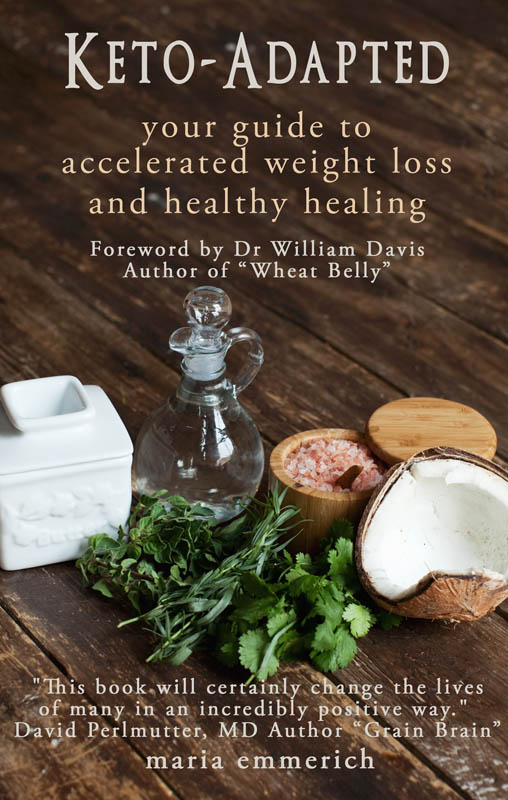
Breast-milk is naturally very high in fat as compared to baby formula which is high in carbohydrates and sugar; causing babies to be addicted to sugar early in life. If a newborn is breastfed, it spends a lot of time in ketosis, and therefore keto-adapted. Keto-adapted babies can efficiently turn ketone bodies into acetyl-coA and into myelin. Ketosis helps babies develop and build their brains. I love it when my clients continue to consume those “fat bombs” they ate to get pregnant because the coconut oil helps with the baby because coconut oil has anti-bacterial, anti-viral and anti-fungal properties which keep the mother and baby healthy. The extra coconut oil also helps with lactation, but more importantly the coconut oil increases lauric acid in the breast milk. Lauric acid is a rare medium-chain fatty acid found in human breast milk that supports healthy metabolism. Read more about this in my new book Keto-Adapted.
If you would like to help out a small family, rather than large business, I am happy to announce that you can now get my books as a high quality ebook that works on any platform. Plus, most of the profits don’t go to Amazon or apple! Click HERE or select “My Books” above to get your copy now!
Click HERE to get a limited edition of the Hard Cover.
Click HERE to get a soft cover.
Thank you all for your love and support!
“Healthified” Flourless Peanut Butter Cookies
1 cup natural peanut butter
1 cup Swerve confectioners
1 teaspoon pure vanilla extract
1 large egg, lightly beaten
Course Redmond Sea Salt, for sprinkling
Preheat the oven to 350 degrees F. In a medium bowl, mix the peanut butter, natural sweetener, vanilla and egg until well combined. Spoon 1 tablespoon of the mixture about 1 inch apart onto ungreased baking sheets. Flatten the mounds. Sprinkle coarse salt on top of the cookies.
Bake until golden around the edges, about 10 minutes. Makes 8 servings.
NUTRITIONAL COMPARISON (per serving)
“Healthified” Cookie = 210 calories, 16.6g fat, 10.8g protein, 6g carbs, 2g fiber (71% fat, 20% protein, 10% carbs)




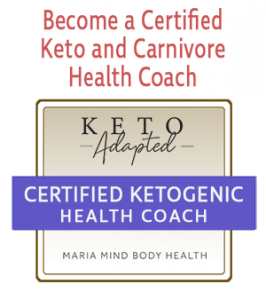



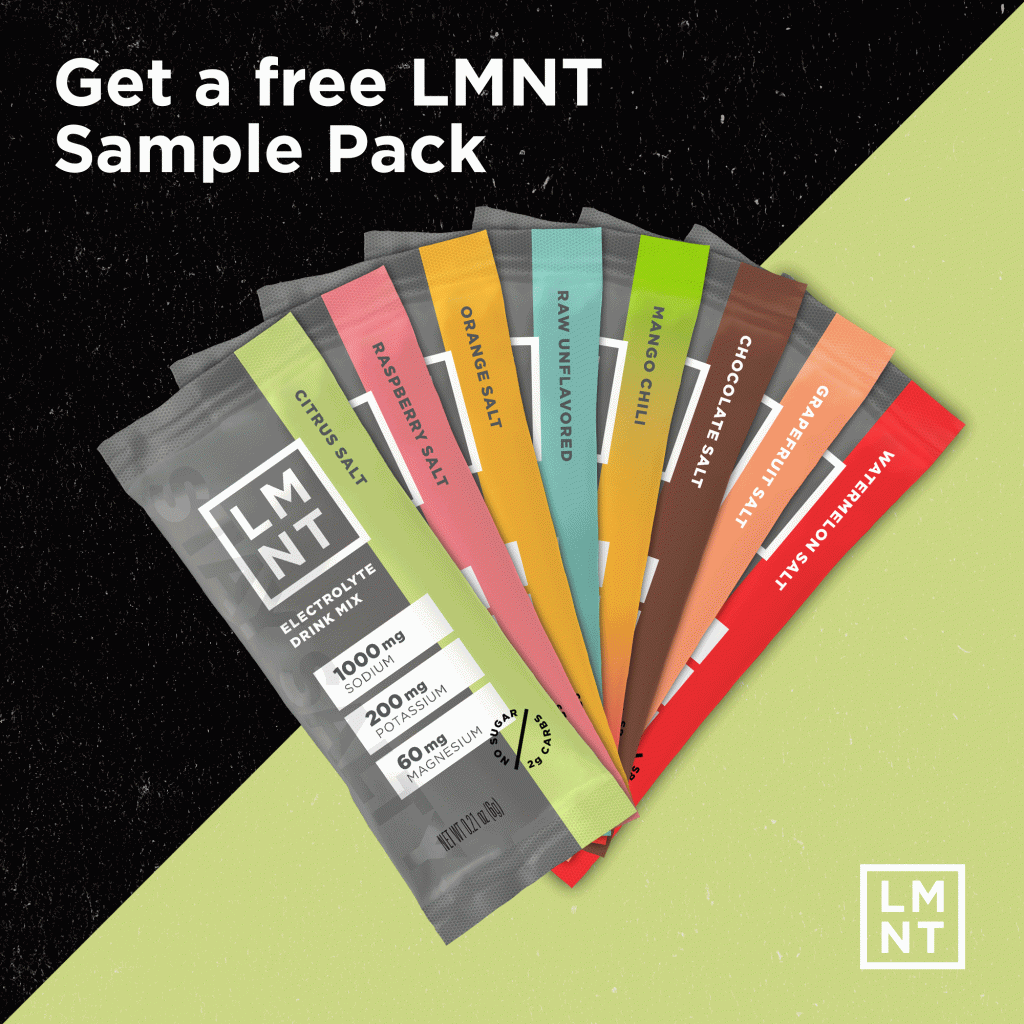
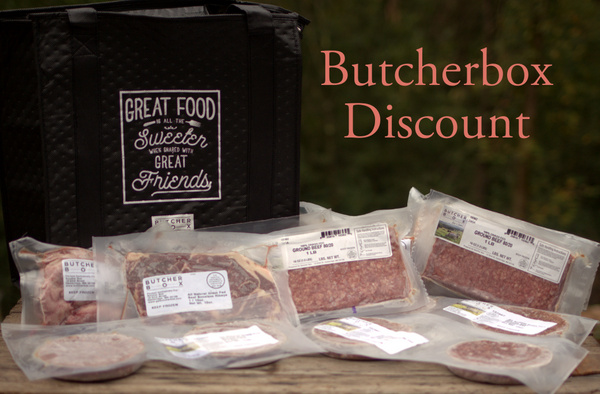


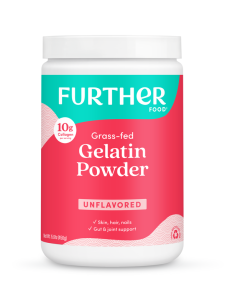

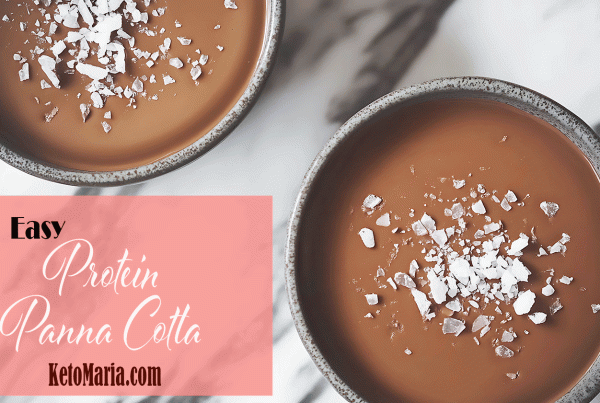
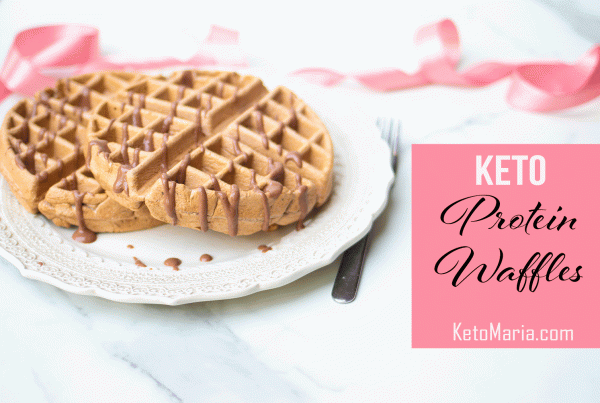

I haven’t been able to find Swerve in the store yet (I live in Ontario, Canada). Can I use Xylitol instead?
Yes, that will work.
Great cookie! Great timing too. We just saw on a cooking channel show how a bakery makes a flour less peanut butter cookie but made it vegan with the flax seed and water instead of egg. So I piped up and said I just so happened to make them (Marias recipe) this morning. Seven year old said they were the best!
Thanks!
What are the calories, fat, and carbs in these, please? By the way, I made mine with almond butter, they are delish!
Thank you!
I added it above. 🙂
These are great. I ended up with 24 cookies. Just checking to see if recipe equals 24 servings?
This is actually 8 servings. 🙂
Maria, can these be made with other nut butters such as macadamia nut butter (great source of fat!) or a combo of mac and cashew or almond butters?? Peanuts are a no-no for us! Thanks-
I’ve made these cookies twice in the last week. They’re so simple and fast to make! I find that they taste best cold. Thanks for your inspiring blog, books, and recipes, Maria! It’s so encouraging to see proof that eating healthy long term doesn’t have to involve deprivation- instead it opens up new doors for delicious and joyful experimentation!